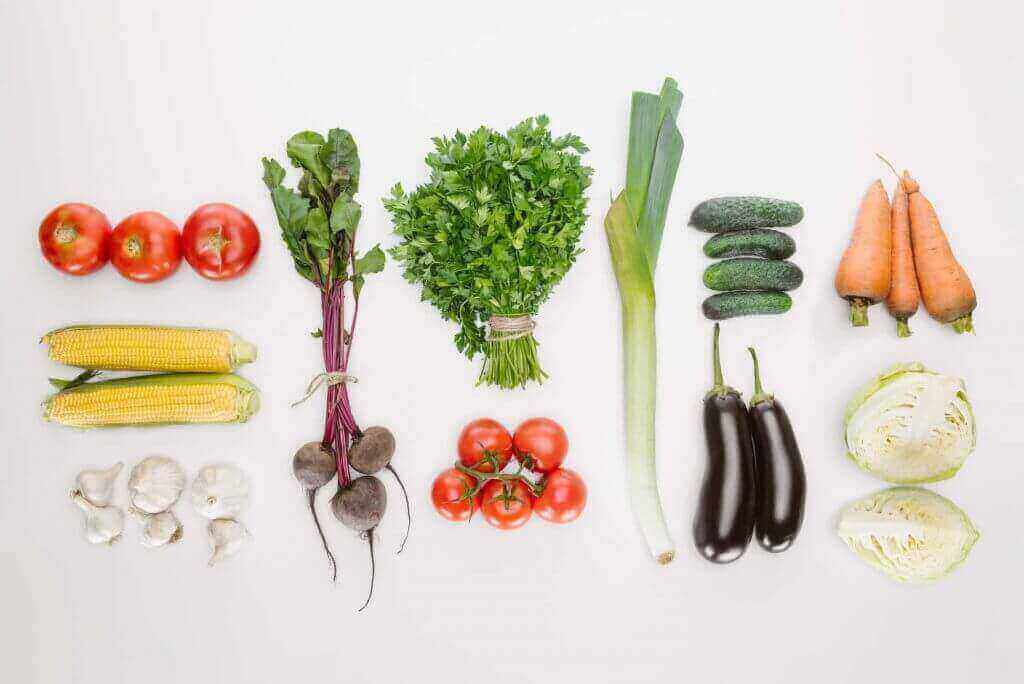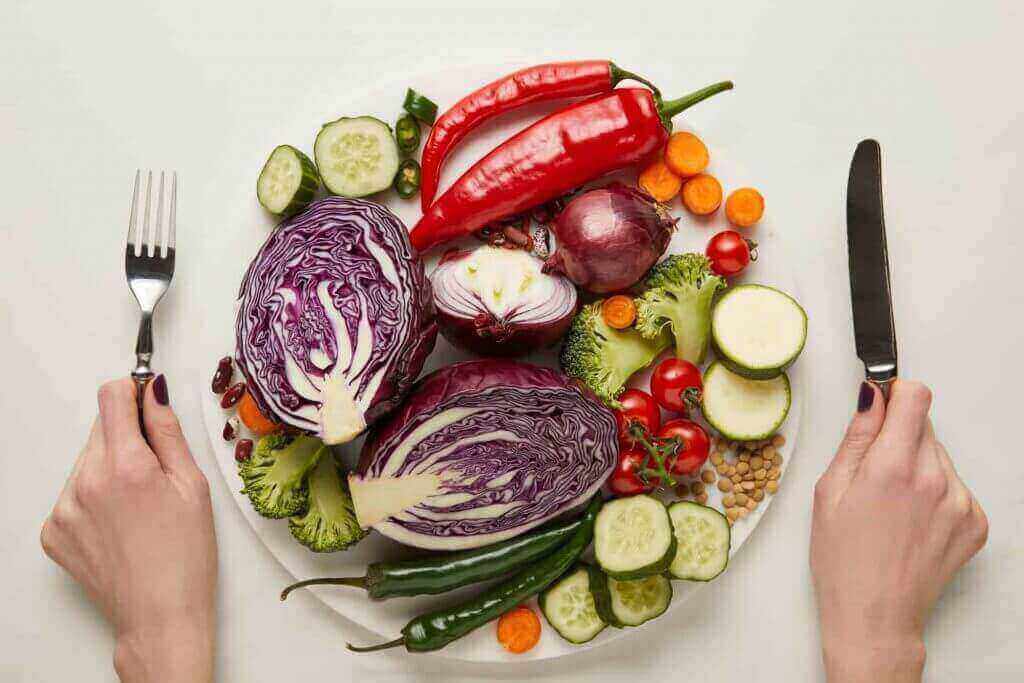When we’re looking at the benefits of vegetables then the list is a pretty long one. When you eat more vegetables, benefits include an increase in energy, improved skin, and overall better health and physical performance. In this guide, we’ll take a look at the benefits of vegetables and why it’s so important to eat them.
How Many Vegetables are Needed?
The US Department for Agriculture recommends that adults should eat around two and a half cups of vegetables each day. However, this can change depending on your age, gender, and the amount of activity you do. An adult male athlete will need a lot more vegetables than an inactive baby for example. You shouldn’t just eat the same vegetables every day either. To get a good range of nutrients, you should eat a mix of vegetables. Try and include vegetables from the five main vegetable groups into your diet each day.
What Counts as a Cup of Vegetables?
When you’re counting vegetables towards your daily intake, you can include ones that are raw, cooked, juiced, chopped, and mashed. One 8oz glass of pure vegetable juice would count as one cup. Because juices don’t have much fiber, you can only count one juice towards your daily target.
Most vegetables require one cup to fulfill a cup serving. However, leafy greens and salads need the equivalent of two cups to make a cup serving. Sometimes it’s hard to measure in cups but you can guess by sight too. As a rough idea, 2 medium carrots, or one large potato would count as one cup of vegetables.

More About the Vegetable Groups
When it comes to vegetables, benefits can vary between all the different types. This is why you need to eat a good mix to get the most benefits of vegetables. To give you an idea about the importance of different vegetables, they can be put into five main categories:
Dark Greens
When we’re looking at dark green vegetables, benefits include a high intake of iron, folates, potassium, and magnesium. Examples of dark green vegetables include spinach, kale, broccoli, and chard. You should aim to eat around 1.5 to 2 cups per week of dark greens.
Red and Orange
This group includes vegetables such as squash and carrots. They contain lots of vitamin A and potassium. For a balanced diet, eat 4 to 6 cups of orange vegetables each week.
Starchy
Good examples of starchy vegetables would be white potatoes and corn. These are generally higher in calories and carbohydrates. It’s recommended that you eat 4 to 6 cups of starchy vegetables every week.
Other
This group is home to all of the other vegetables such as beets, broccoli, and tomatoes. They all have a huge range of unique health benefits. Try and include a range of 3.5 to 5 cups of other vegetables in your diet each week.
Beans, Peas, and Lentils
These are packed full of protein, fiber, folate, and minerals that are essential for a healthy diet. For the maximum health benefits, eat 1 to 2 cups per week of beans, peas, or lentils.
Daily Vegetable Table
A daily vegetable table shows you exactly what types of vegetables you need to get the most benefits of vegetables. The daily vegetable table gives recommended targets for girls, boys, women, and men across all age groups. It’s based on those who get less than 30 minutes of exercise each day meaning it’s a minimum target.
If you’re very active then you should increase your vegetable intake accordingly. You can use a personal daily vegetable table to set yourself healthy eating goals. To make sure that you’re getting the right mix and variety try making a weekly table too. This way you can make sure that you’re getting a good range of vegetables from the five different groups.
Best Vegetable Dishes
When it comes to getting the most from the benefits of vegetables, then you should prepare them correctly. Depending on the way that you serve your vegetables, benefits can be improved or removed. This means that a healthy salad can quickly become unhealthy with a creamy dressing. The best vegetable dishes should contain a range of vegetables.
This way you can easily reach your recommended daily targets in just one meal. Avoid deep-frying vegetables in dishes, the fat can counteract any benefits. The best way to cook vegetables is by steaming or boiling them. Roasted is also good as long as you don’t use lots of oil. Make the effort to eat raw vegetables too, these contain the most nutrition.

Why is it Important to Eat Vegetables?
Our bodies need vital nutrients from vegetables to function and survive. But apart from being delicious and full of nutrients, vegetables are also the best source of fiber. Fiber is an important part of our diets that helps the digestive system to function smoothly. Fiber makes us feel full and without it, we can’t absorb nutrients. When we don’t eat vegetables, our bodies can’t perform at their best. This can leave us feeling sluggish and makes us vulnerable to all kinds of illnesses.
Health Benefits
Vegetables don’t just provide the right fuel to your body, they have plenty of other health benefits too. As well as boosting your mood and energy levels they can also help prevent illnesses and diseases. Eating plenty of vegetables will boost your immune system making you less likely to get colds and seasonal illnesses. It is thought that the health benefits of vegetables include reducing the risk of cancer and heart disease. Vegetables are low calorie, low fat, low sodium, and low sugar. This means that you can eat lots of them without worrying about your weight.
As you can see from this guide, the benefits of vegetables are countless. This is why they should make up a big part of your diet. When you eat the recommended daily targets of vegetables, benefits can be seen immediately. What are you waiting for? Start eating more veg today!


You must be logged in to post a comment.